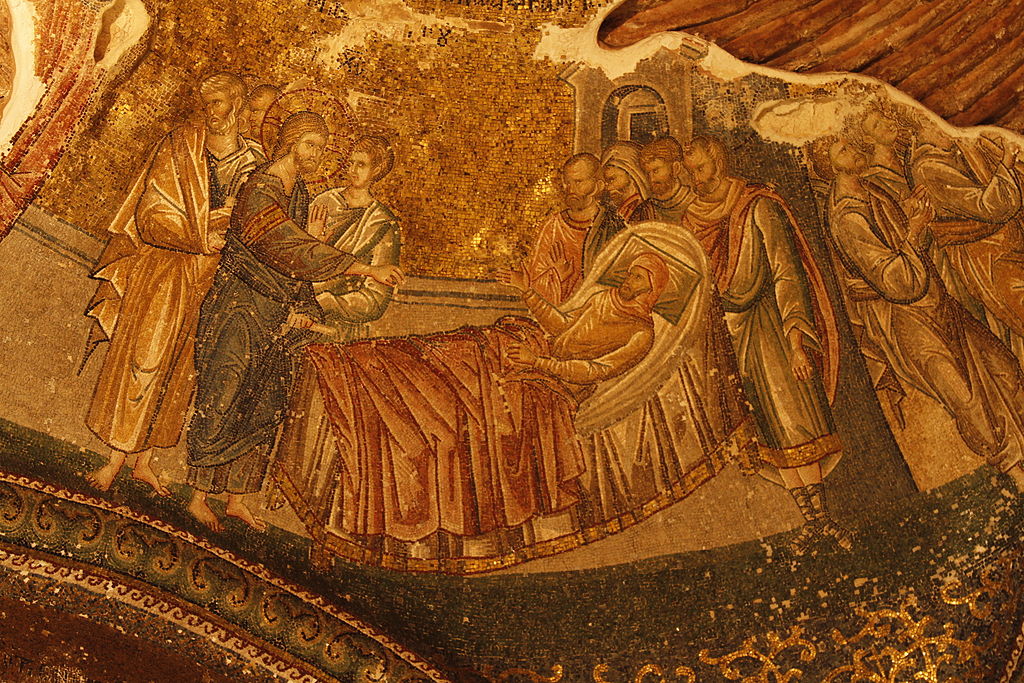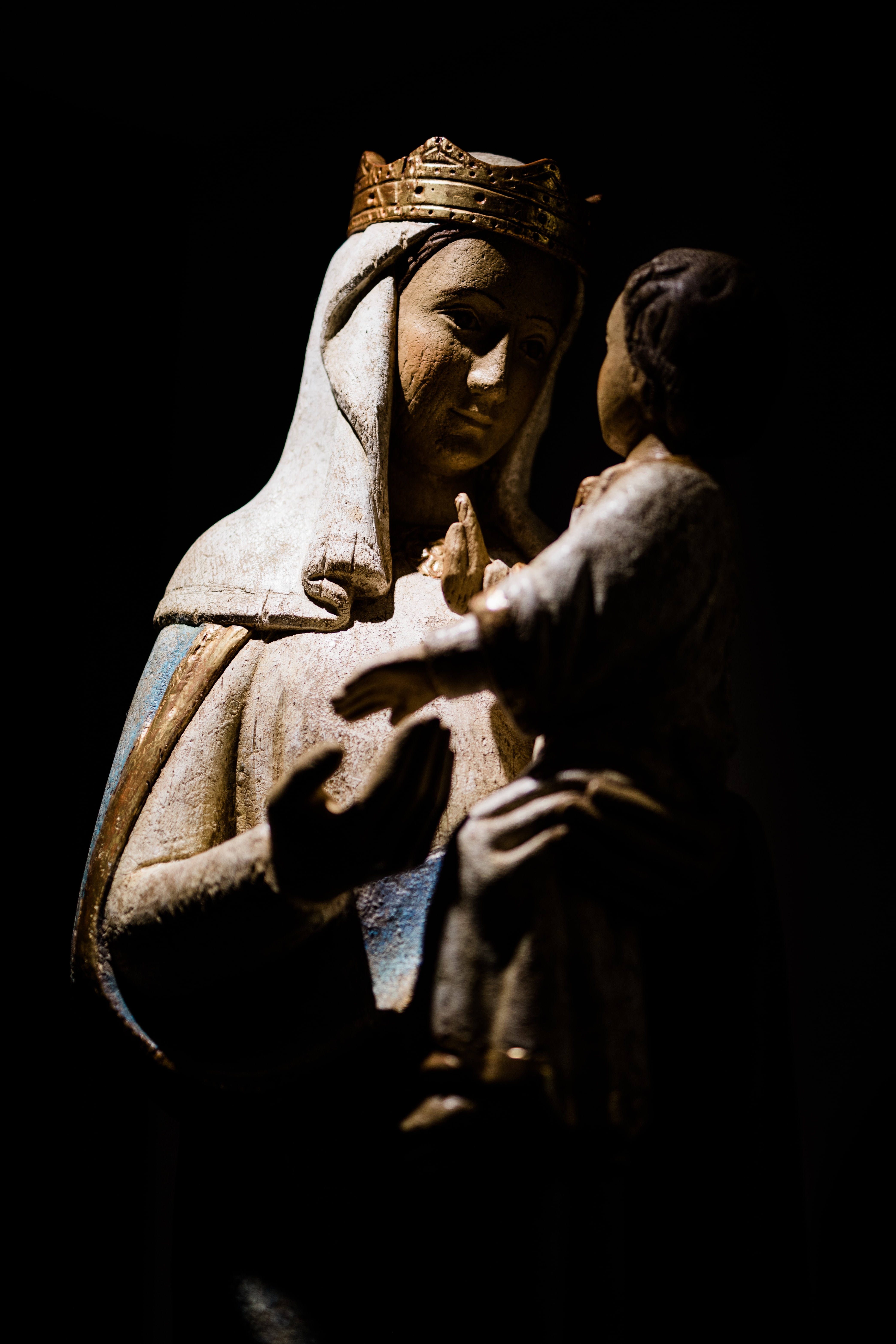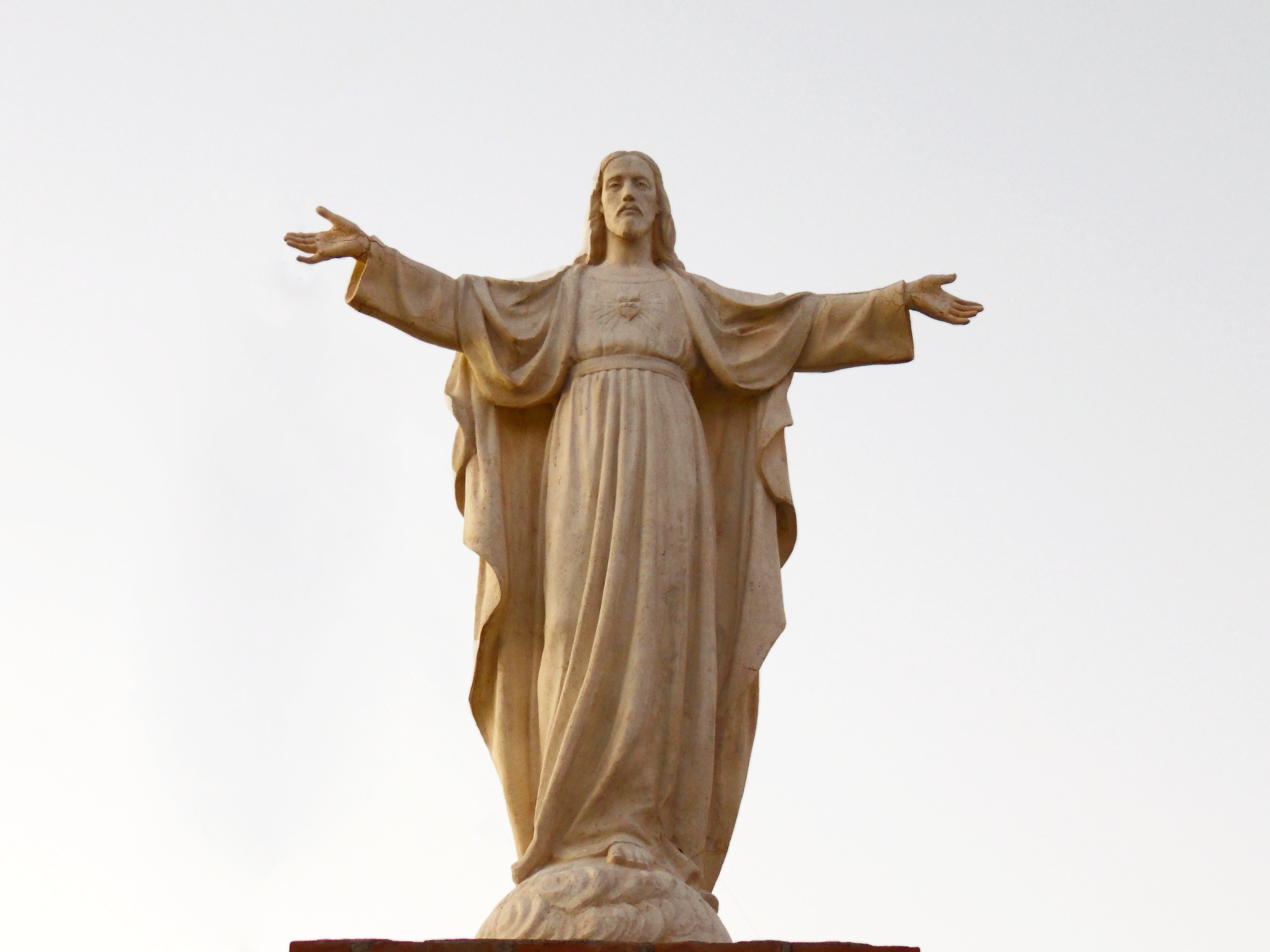The English language can be so confusing. To speak of peace is not the same as to speak a piece of my mind (or my piece). The words peace/piece are homophones, words that sound the same but have different meanings. Peace is what has been catching my attention when praying and reflecting with today’s readings.
Let me clarify as to why.
The readings from Amos and the Gospel speak of transitions; the restoration of the people and lands of Israel, fasting, a bridegroom and wedding guests, and the patching of cloaks and wineskins. As I read these passages, I am reminded of perseverance, patience during the process and the grace of peace through it all.
The Responsorial Psalm illustrates this:
“The Lord speaks of peace to his people.
The Lord proclaims peace to his people.
Kindness and truth shall meet; justice and peace shall kiss.
Truth shall spring out of the earth, and justice shall look down from heaven.
The LORD himself will give his benefits; our land shall yield its increase.
Justice shall walk before him, and salvation, along the way of his steps.”
These phrases about peace are words of encouragement, grace, hope and strength to continue in all of the facets of my day and in the world. I so easily get caught up in personal drama or issues swirling around me, that I forget that the focus is to be the Lord’s way, not the contention and disharmony that abounds on the earth, throughout every part of creation.
The Lord says: “my sheep hear my voice; I know them, and they follow me.” Jn 10:27
When I read this line I understand it as a directive to speak and do as the Lord would with a newborn, the infirmed, the elderly, the grieving, anyone who is learning (which is everyone, at all times). I am to follow the Shepherd who has justice before him and salvation in his footsteps. I am to be a companion and leader to sow peace, truth and justice in the world and all stages and places of life.
Let there be peace on earth, and let it begin with me. Amen.
________________________________________________________________________________
La paz es lo que me ha estado llamando la atención al orar y reflexionar con las lecturas de hoy.
Permítanme aclarar por qué.
Las lecturas de Amós y el Evangelio hablan de transiciones; la restauración del pueblo y las tierras de Israel, el ayuno, el novio y los invitados a la boda, y el remiendo de mantos y odres. Mientras leo estos pasajes, recuerdo la perseverancia, la paciencia durante el proceso y la gracia de la paz a través de todo.
El Salmo Responsorial ilustra esto:
“El Señor habla de paz a su pueblo.
El Señor proclama la paz a su pueblo.
La bondad y la verdad se encontrarán; la justicia y la paz se besarán.
La verdad brotará de la tierra, y la justicia mirará desde el cielo.
El SEÑOR mismo dará sus beneficios; nuestra tierra dará su producto.
La justicia caminará delante de él, y la salvación, por el camino de sus pasos”.
Estas frases de paz son palabras de aliento, gracia, esperanza y fuerza para continuar en todas las facetas de mi día y del mundo. Me enredo tan fácilmente en el drama personal o en los problemas que me rodean, que olvido que el enfoque debe ser el camino del Señor, no la contención y la falta de armonía que abundan en la tierra, en cada parte de la creación.
El Señor dice: “mis ovejas oyen mi voz; Yo las conozco y ellas me siguen.” Juan 10:27
Cuando leo esta línea la entiendo como una directiva para hablar y hacer lo que el Señor haría con un recién nacido, un enfermo, un anciano, un doliente, cualquiera que esté aprendiendo (es decir todos, en todo momento). Debo seguir al Pastor que tiene la justicia delante de él y la salvación en sus pasos. Debo ser compañero y líder para sembrar la paz, la verdad y la justicia en el mundo y en todas las etapas y lugares de la vida.
Que haya paz en la tierra, y que empiece conmigo. Amén.
 Beth Price is part of the customer care team at Diocesan. She is a Secular Franciscan (OFS) and a practicing spiritual director. Beth shares smiles, prayers, laughter, a listening ear and her heart with all of creation. Reach her here bprice@diocesan.com.
Beth Price is part of the customer care team at Diocesan. She is a Secular Franciscan (OFS) and a practicing spiritual director. Beth shares smiles, prayers, laughter, a listening ear and her heart with all of creation. Reach her here bprice@diocesan.com.
Feature Image Credit: Lanzar las Redes, www.cathopic.com/photo/1844-paisaje


 Arthur Richardson is married to his wonderful wife, Gabby Richardson. Most of his work experience is in ministry. He was a retreat missionary in Wisconsin for two years and a youth minister for three years. He is now the Web Project Manager here at Diocesan, and loves it!
Arthur Richardson is married to his wonderful wife, Gabby Richardson. Most of his work experience is in ministry. He was a retreat missionary in Wisconsin for two years and a youth minister for three years. He is now the Web Project Manager here at Diocesan, and loves it!
 Kathryn James Hermes, FSP, is the author of the newly released title
Kathryn James Hermes, FSP, is the author of the newly released title
 Kate Taliaferro is an Air Force wife and mother. She is blessed to be able to homeschool, bake bread and fold endless piles of laundry. When not planning a school day, writing a blog post or cooking pasta, Kate can be found curled up with a book or working with some kind of fiber craft. Kate blogs at
Kate Taliaferro is an Air Force wife and mother. She is blessed to be able to homeschool, bake bread and fold endless piles of laundry. When not planning a school day, writing a blog post or cooking pasta, Kate can be found curled up with a book or working with some kind of fiber craft. Kate blogs at 
 Leslie Sholly is a Catholic, Southern wife and mother of five, living in her hometown, Knoxville, Tennessee. She graduated from Georgetown University with an English major and Theology minor. She blogs at
Leslie Sholly is a Catholic, Southern wife and mother of five, living in her hometown, Knoxville, Tennessee. She graduated from Georgetown University with an English major and Theology minor. She blogs at 
 Deacon Dan Schneider is a retired general manager of industrial distributors. He and his wife Vicki have been married for over 50 years. They are the parents of eight children and thirty grandchildren. He has a degree in Family Life Education from Spring Arbor University. He was ordained a Permanent Deacon in 2002. He has a passion for working with engaged and married couples and his main ministry has been preparing couples for marriage.
Deacon Dan Schneider is a retired general manager of industrial distributors. He and his wife Vicki have been married for over 50 years. They are the parents of eight children and thirty grandchildren. He has a degree in Family Life Education from Spring Arbor University. He was ordained a Permanent Deacon in 2002. He has a passion for working with engaged and married couples and his main ministry has been preparing couples for marriage.
 Mike Karpus is a regular guy. He grew up in Michigan’s Upper Peninsula, graduated from Michigan State University and works as an editor. He is married to a Catholic school principal, raised two daughters who became Catholic school teachers at points in their careers, and now relishes his two grandchildren, including the 3-year-old who teaches him what the colors of Father’s chasubles mean. He has served on a Catholic School board, a pastoral council and a parish stewardship committee. He currently is a lector at Mass, a Knight of Columbus, Adult Faith Formation Committee member and a board member of the local Habitat for Humanity organization. But mostly he’s a regular guy.
Mike Karpus is a regular guy. He grew up in Michigan’s Upper Peninsula, graduated from Michigan State University and works as an editor. He is married to a Catholic school principal, raised two daughters who became Catholic school teachers at points in their careers, and now relishes his two grandchildren, including the 3-year-old who teaches him what the colors of Father’s chasubles mean. He has served on a Catholic School board, a pastoral council and a parish stewardship committee. He currently is a lector at Mass, a Knight of Columbus, Adult Faith Formation Committee member and a board member of the local Habitat for Humanity organization. But mostly he’s a regular guy.
 Kathryn Mulderink, MA, is married to Robert, Station Manager for Holy Family Radio. Together they have seven children (including Father Rob), and four grandchildren. She is President of the local community of Secular Discalced Carmelites and has published five books and many articles. Over the last 30 years, she has worked as a teacher, headmistress, catechist, Pastoral Associate, and DRE, and as a writer and voice talent for Catholic Radio. Currently, she serves the Church by writing and speaking, and by collaborating with various parishes and to lead others to encounter Christ and engage their faith. Her website is
Kathryn Mulderink, MA, is married to Robert, Station Manager for Holy Family Radio. Together they have seven children (including Father Rob), and four grandchildren. She is President of the local community of Secular Discalced Carmelites and has published five books and many articles. Over the last 30 years, she has worked as a teacher, headmistress, catechist, Pastoral Associate, and DRE, and as a writer and voice talent for Catholic Radio. Currently, she serves the Church by writing and speaking, and by collaborating with various parishes and to lead others to encounter Christ and engage their faith. Her website is 
 Emily Jaminet is a Catholic author, speaker, radio personality, wife, and mother of seven children. She earned a bachelor’s degree in mental health and human services from the Franciscan University of Steubenville. She is the co-founder of
Emily Jaminet is a Catholic author, speaker, radio personality, wife, and mother of seven children. She earned a bachelor’s degree in mental health and human services from the Franciscan University of Steubenville. She is the co-founder of 

 Tami Urcia grew up in Western Michigan, a middle child in a large Catholic family. She spent early young adulthood as a missionary in Mexico, studying theology and philosophy, then worked and traveled extensively before finishing her Bachelor’s Degree in Western Kentucky. She loves tackling projects, finding fun ways to keep her little ones occupied, quiet conversation with the hubby and finding unique ways to love. She works at for Christian Healthcare Centers, is a guest blogger on
Tami Urcia grew up in Western Michigan, a middle child in a large Catholic family. She spent early young adulthood as a missionary in Mexico, studying theology and philosophy, then worked and traveled extensively before finishing her Bachelor’s Degree in Western Kentucky. She loves tackling projects, finding fun ways to keep her little ones occupied, quiet conversation with the hubby and finding unique ways to love. She works at for Christian Healthcare Centers, is a guest blogger on 

